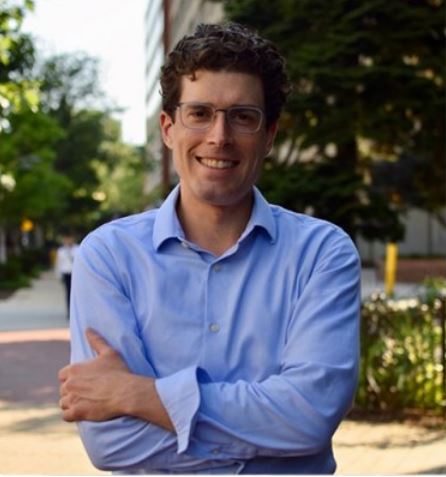
What is your current profession/job? What did you study at Yale? When did you graduate?
I’m an Associate Director for Policy at the US Food and Drug Administration in Washington D.C. At FDA, our team has been implementing a new approval pathway for “biosimilars,” which are follow-on (or “generic”) biological products. “Biological products” are an important category of drugs that are generally much more molecularly complex than conventional, “small-molecule” drugs. Congress created the biosimilar pathway as part of the Affordable Care Act in 2010 to promote price competition and innovation in this area.
At Yale, I studied the cell biology and genetics of the human pathogen, Trypanosoma brucei. T. brucei is in a group of eukaryotic parasites called kinetoplastids that are responsible for several diseases in humans and animals. Among other projects, we were able to work with sequencing techniques and bioinformatics to collect vast amounts of data about the small RNAs present in T. brucei. I graduated from Yale in 2010 with a PhD in cell biology.
What do you like most about your current role? What do you find most challenging and/ or rewarding?
I’ve been an attorney at FDA for about 4 years. I’ve been incredibly lucky to work every day on a complex field of law that is constantly evolving and vital to public health. I have a great variety of colleagues that I get to work with at the agency—these are the scientific and medical experts that review the data and evaluate whether a new drug meets the standards for approval. The work at the agency is challenging from a technical perspective, and what I love most is communicating with scientists and physicians and helping them to understand the implications of the laws and regulations that govern the agency’s actions.
How did your time at Yale shape your career trajectory?
I don’t work as a scientist anymore and, to be frank, one of the most important things I learned about myself at Yale was that I didn’t want to pursue a career in bench science. That being said, I would not have ended up in my current job—and I wouldn’t enjoy my current job as much—had I not developed an understanding and facility with cell biology and related biomedical subjects at Yale.
What are the main skills that you acquired as a PhD student which help make you successful in your current career?
There are two things that are crucial to my current career: subject-matter expertise and effective verbal communication.
First, grad school is a great place to develop the skills and focus needed to become an expert in a complex field. I’m working now in a different universe, one of law and policy, and it has been natural to apply the skills I learned in graduate school to becoming competent and useful as an attorney.
Second, communication: there is constant pressure as a PhD student to become better at communicating technical concepts. Looking back, this is probably where I grew the most during grad school. I was constantly presenting my work to colleagues and conferences and teaching undergraduate classes. These experiences translate directly to other fields, including my current job.
Finally, my time as a PhD student was an immersion in scientific ideas. Weekly lab meetings, seminars, conferences—it was exciting to be a member of this scientific community and to develop an understanding of a variety of interrelated biomedical fields. As an attorney in a biomedical field, pharmaceutical regulation, it’s very helpful to be fluent in the relevant science.
Did you acquire any professional experience related to your line of work while in graduate school?
I really did not spend much time during grad school on work outside my thesis project, though I became very interested in the controversy over the patenting of biological discoveries and this piqued my interest in law school. From the perspective of developing one’s career trajectory, it’s important to be open to subject matter outside of one’s comfort zone.
What advice would you offer PhDs who are interested in your line of work?
To do the work I’m doing now, I had to go to law school. I would only recommend going to law school after giving serious thought to whether (1) studying the law and (2) practicing as an attorney both sound attractive. I should have done more of that before jumping into a new field and I consider myself very lucky that being attorney turned out to be such a great fit. I really think that if you want to change fields, the best thing you can do is to find people in that field who seem to love their work and talk to them about their job and lifestyle.
